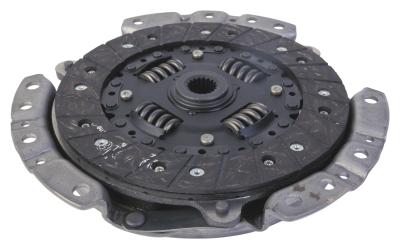
Clutch disc failure is one of the inevitable perils you face when trusting a human being to do a job most often left to machines. But even if you're perfectly genteel with the clutch, it's still going to wear out eventually anyway. Comfort yourself with the fact that it's a small price to pay for driving your car without computer nannies doing your thinking for you.
Like brake shoes, all clutches wear out over time. Even if you slip the clutch as little as possible, the friction disc itself isn't likely to last the life of the engine or transmission without needing replacement at some point. The pressure plate springs that hold the clutch disc to the flywheel will eventually weaken and cause clutch slippage, and you can probably expect throwout bearing or clutch slave cylinder failure at some point.
Clutch material is like brake pad material in more than one respect, prime among them being that even one overheating event can permanently glaze the material surface. Afterward, the clutch disc loses its ability to grip the flywheel and develops a tendency to slip. Failure is progressive from there; every time the clutch slips, it gets a little worse until it stops working at all. You might be able to put off clutch failure for a while after one severe overheating, but it'll never be the same until you replace the disc.
A wet clutch isn't necessarily ruined as long as you give it time to dry out, but it may be if you drive the car before it does. Water soaks into the clutch material, which itself is something like resin-impregnated cork. Once it gets wet, the clutch loses some of its ability to grip the flywheel and starts to slip, generating heat and turning the impregnated water into steam. The steam expands in the friction material's pores, literally ripping the material to shreds from the inside out like an egg in a microwave.
This is a fairly common failure for older engines and transmissions, and comes as a result of a failed rear main seal on the engine or front seal on the transmission. Hot oil has little more viscosity than water, which means that it soaks into the clutch disc just like water. But unlike water, oil in the clutch won't dry out after a while -- it'll sit there for years, waiting for you to attempt to send power through the clutch and to the transmission. Once you do, the clutch slips, overheats and burns out.